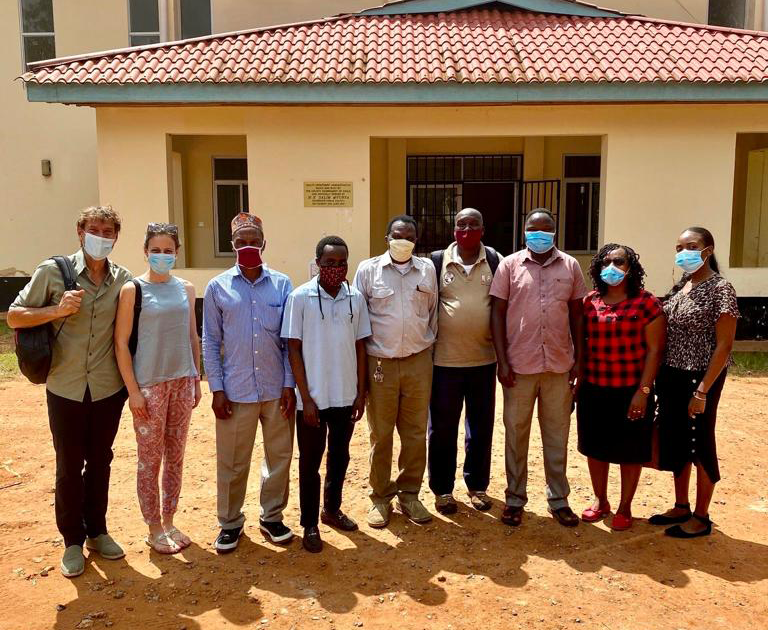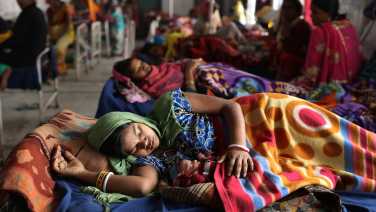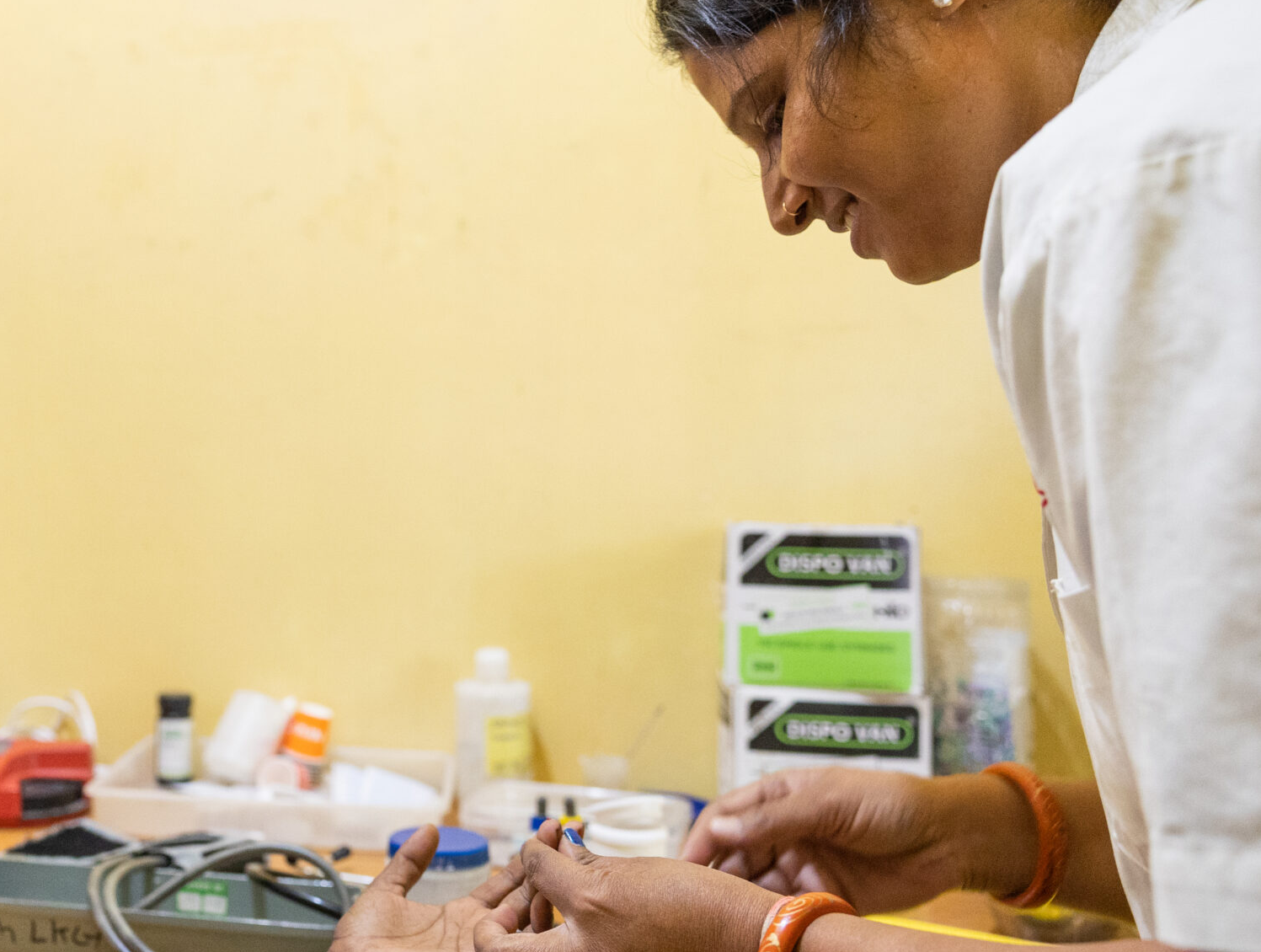Global Public Health
ETH for Development (ETH4D) has been supporting the following projects in the field of Health.
Iron and Vaccine-preventable Viral Disease

Dealing with the current COVID-19 pandemic requires a better understanding of health conditions that modulate the immune response to the virus as well as ensuring the efficacy of future vaccines.
While immunization programs have achieved high coverage on the African continent, vaccines often underperform compared to high-income countries. Why vaccines do not work as well in Africa remains uncertain. Malnutrition likely plays a role. Iron deficiency anemia (IDA) weakens the adaptive immune response and thereby may impair response to vaccines. In Kenya, anemia affects 25% of women of reproductive age.
This experimental study with 112 participants aims to assess whether IDA in Kenyan women impairs their immune response to viral vaccines and whether iron treatment improves their response. Participants will be randomly assigned to a treatment (immediate iron-treatment) and control (delayed iron-treatment) group to measure differences in vaccine response to three anti-viral vaccines (influenza, yellow fever, and measles-rubella).
The findings will clarify the potential role of IDA, and its treatment, in maximizing the efficacy of future COVID-19 vaccines in Africa.
Focus Country: Kenya
Contact: Dr. Nicole Stoffel
Partners: external page School of Public Health, Jomo Kenyatta University, Msambweni District Hospital
ETH4D Grant: ETH4D Research Challenges Grant
Point-of-care Diagnosis of Trichomoniasis to Improve Linkage to Care and Combat Antimicrobial Resistance in Low- and Middle-Income Countries
Antimicrobial resistance (AMR) poses a significant threat to public health, particularly in regard to the control of sexually transmitted infections (STIs). Amongst STIs, trichomoniasis, caused by the parasite T. vaginalis, remains one of the most common. Infection with T. vaginalis is associated with serious health consequences, including adverse pregnancy outcomes and an increased risk of transmitting HIV to sexual partners. Trichomoniasis and its complications disproportionately affect communities in low- and middle-income countries (LMICs).
In the absence of appropriate diagnostics, resource-limited countries rely on syndromic management, which results in inappropriate treatment and contributes to the development of resistance to nitroimidazoles, the only effective drug class available. An essential first step in mitigating the impact of trichomoniasis is the deployment of effective diagnostic tests and timely linkage to appropriate care.
The Foundation for Innovative Diagnostics (FINDx) highlights low cost, fast time to results, and ease of use and specimen collection to ensure implementation of diagnostic testing at the point-of-care in resource-limited settings. Currently available molecular diagnostic platforms, whilst highly accurate, are prohibitively complex and expensive, making nationwide introduction in LMICs unfeasible.
Building upon existing technology from ETH Zurich, the project develops a novel low-cost point-of-care diagnostic test to detect both the presence of T. vaginalis and antimicrobial resistance genes. This test will combine a novel CRISPR-Cas12 based biosensing assay with highly-scalable microfluidic architectures and has been designed around the requirements of FINDx.
Focus Countries: Zambia
Contact: Dr. Daniel Richards
Partners: external page Centre for Infectious Disease Research (Zambia), Kanyama General Hospital
ETH4D Grant: ETH4D Research Challenges Grant
Digital Solutions for Perinatal Depression in India

Depression and anxiety during pregnancy and/or the first year postpartum (”the perinatal period”) affect up to 22% of women in India with little to no access to timely care or intervention. Some of the biggest barriers to seeking and obtaining early help during this time are mothers' limited access and engagement with traditional face-to-face treatment services due to lack of trained mental health professionals, sociocultural customs in traditions, high costs, geographical distance to services, logistical issues, and perceived stigma associated with seeking help, prompting many women to seek digital solutions.
The research has developed such an app with the aim to evaluate the feasibility, acceptability and utility of using a decision-making app for perinatal depression and anxiety in India. In doing so, the effectiveness of the decision-making skills of women will be compared to treatment decisions conducted by healthcare workers trained in mental health.
Focus Country: India
Contact: Dr. Sonali Mohanty Quantius
Partners: external page White Swan
ETH4D Grant: ETH4D Research Challenges Grant
Development and Implementation of a Multiplexed Point-of-care Diagnostic Test for Dengue Virus Infections

Infectious diseases pose a significant threat to human health, particularly in low- and middle-income countries (LMICs). Mosquito-borne viruses are of particular concern due to the prolific reproduction rates of mosquitos and their rapidly expanding habitats. The rapid spread of Dengue virus (DENV) over the last 50 years perfectly exemplifies the impact of mosquito-borne viruses. Though DENV was once localized to a few tropical countries, it is now endemic throughout the Americas and Southeast Asia. Best estimates of the dengue disease burden suggest that over half of the world’s population lives in dengue risk areas and that there are 390 million dengue infections alone per year, of which 96 million manifest clinically. Estimates place the total annual global cost of dengue at 8.9 billion USD. Unfortunately, populations living within LMICs bare a disproportionate burden. The reasons for this are multifaceted, consisting of interconnected geographical, social, and economic factors.
It is widely accepted the lack of effective track-trace-treat programs has played a central role in the rise of DENV infections. The key to these programs is effective diagnostic technologies. Unfortunately, contemporary diagnostics rely on complex laboratories and highly-trained personnel. This greatly limits their utility within LMICs. To remedy this, researchers are focusing on developing point-of-care (PoC) diagnostic devices. These devices harness modern advances in engineering and biochemistry to miniaturize assays into simple, portable, and cost-effective formats. Unfortunately, to date, PoC diagnostics have failed to reduce the impact of dengue; clearly, there is an urgent need for innovation. In this project, we will leverage novel technologies developed within ETH Zürich to create a highly sensitive and specific diagnostic test for DENV. This work will be supported by a strong framework of clinicians, virologists, engineers, and biochemists from Switzerland and Colombia. This team will drive the work from conception through to implementation within Colombia.
Focus Country: Colombia
Contact: Andrés Javier Bello Hernández, Prof. Andrew deMello
Partners: external page Dr. Andreas Neumayr (Swiss TPH), external page PD Dr med. Stefan Stübinger (University of Basel), external page Prof. Ruben Godoy (Universidad Nacional de Colombia),
external page Fernando de la Hoz (Universidad Nacional de Colombia)
ETH4D Grant: E4D Doctoral Scholarship
